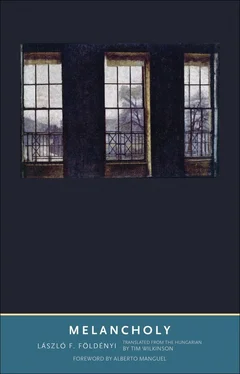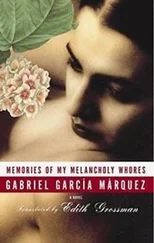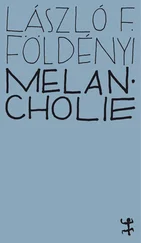To make even good humor a target of gloom — that was one of the oddest features of these Romantics who died young. It was a recognition of uniqueness, finitude, inevitable demise; and when the Romantics attempted to protect their individuality against an all-leveling totality, they had to realize that if they did not give full vent to their character, then their individuality would degenerate into a foppish eccentricity. The world itself was the main barrier to a true life, so they created a new world within the boundaries of the soul. Not that they were so naïve as to imagine that the inner world was completely independent of the external world. As Novalis put it: “Inside us we also have an external world, which relates to our inner world as the outer world beyond us does to our outer world. . We can gain closer access to nature’s inside and soul only with our thoughts, in just the same way as we can only get acquainted with the outside and the physical essence of nature with our senses” (Novalis, Ausgewählte Werke , 3:27). Hence the gloom: freedom cannot be thought of without constraints. The Romantics were perfectly aware of their impossible position, and this awareness dictated their steps — not the sheer yearning that Hegel tried to attribute to them. The fundamental paradoxes of the Romantics can be seen to derive from this: from the suffering that at one and the same time offered the possibility of a liberated enjoyment of a new world; from a new world formed by an internal region of the soul and therefore more destructive than the outside world; from the recognition that the internal being is just as much a restraint as the external one; and from the astonishment that if God has in fact died, then it is vain hoping to conjure an absolute out of anything (even the self). 10Existence had not simply become senseless — one could easily see that — but one could not do anything with it because it kept slipping out of one’s hands. And that was no longer a hypothetical matter but a problem of how to live, which started with astonishment at one’s own existence and, after every conceivable detour, found its way back again to that starting point.
“As I grow older,” Byron wrote to Shelley, “the indifference — not to life, for we love it by instinct — but to the stimuli of life, increases” (26 April 1821; Letters and Journals , 5:268–69). Mention has already been made of boredom, which, inasmuch as it relates to existence itself, can also be called indifference. Indifference engulfs everything with a loss of faith and interest; it is ever harder for anything to awaken one’s interest. “There is no freedom in Europe — that’s certain,” Byron wrote, but his own apathy was divulged in the second part of the sentence: “it is besides a worn-out portion of the globe” (3 October 1819; ibid., 4:358). The Romantics withdrew into their own “internal,” unapproachable world, in contrast with the classicists, who strove to acquire eternity by self-realization in the “outside” world. Indifference toward the external world is inevitably attended by the muddling up of that external world. In characterizing Romantic poetry, August Wilhelm Schlegel apprehended the difference in the following way: “Ancient poetry and art is a rhythmical nomos , a harmonious promulgation of the eternal legislation of a beautifully ordered world mirroring the eternal Ideas of things. Romantic poetry, on the other hand, is the expression of a secret longing for the chaos which is perpetually striving for new and marvellous births, which lies hidden in the very womb of orderly creation” (quoted in René Wellek, A History of Modern Criticism, 1750–1950 , 2:59). The two types of poetry rest on two different interpretations of human nature. The origin of the word “classic” alludes to this: in Rome, the listing of citizens for taxation purposes was called classification. So Classicism refers not so much to the perfect, many-sided development of something (that definition is based on a preliminary, tacit acceptance of the notion of Classicism) as to an image of man . In Classicism, labeling, subordination, classification, respect for measure are asserted — even when there is seemingly no question of it (for example, in the case of individual works of art), this notion still lurks in the background (Horace’s Ars poetica or the architecture of Palladio are extreme examples). Classical sculpture, classical poetry, the classical conception of man equally have a liking for and lay stress on the typical . But what is considered typical at a certain time is always relative. At the bottom of classical notions there usually lies a trust in history, a faith in progress, identification with the goals of a country or politics, etc. For that reason, Classicism always favors the whole over the part, the general over the singular. (True, the great creative works of Classicism usually reek of melancholia, but that is a sign of the ultimate failure of the aspiration of classicist art; Palladio’s interiors are “melancholic” spaces because the architect palpably did not wish to be melancholic.) “It is only the whole which properly has reality,” Hegel pronounced in The Phenomenology of Mind (2:690), and at the bottom of that statement is a solid picture of man: man is heart and soul, root and branch, part of a larger whole, can “use” his body and soul only as part of that larger whole. Classicism is a belief in there being a goal for life, for existence, for the universe or anything else. Classicists mostly grew old — they preserved both body and soul, that is, they unconsciously stood (set themselves) in the service of something. 11A chasm yawned before the Romantics, and at most they could serve only that — even at the price of their own lives. Romanticism was indifference in the strictest sense of the word — and because it was interested in man rather than people, it was indifferent to politics as well. (Goethe, who in many respects was more Romantic than the Romantics, and Nietzsche were both indifferent to politics, which from the eighteenth century on became ever more formal and became subject to reasoning instead of action. And Byron, who started his career as a parliamentary speaker, noted: “As for me, by the blessing of indifference, I have simplified my politics into an utter detestation of all existing governments;. . I don’t think politics worth an opinion. Conduct is another thing — if you begin with a party, go on with them. I have no consistency, except in politics; and that probably arises from my indifference on the subject altogether” (journal entry for 16 January 1814; Letters and Journals , 2:381). The measure was lost, or, more precisely, the earlier measure had come to be regarded chiefly as one that served for the destruction of the individual. Romanticism did not see any all-embracing whole into which the individual could have been incorporated body and soul. 12Unlike the classicists, the Romantics were incarnates of “passionate fragments” (Musil) — they were wastrels, at least from the point of view of the classicist or the everyday world, which in losing sees only the loss, in winning, the gain, and is unable to notice the gain deriving from loss, and the loss or narrowing associated with gains.
Being left alone can also become a source of strength. Unlike their meditating successors, the Romantics were just as energetic and ready to act as the classicists — it was not their fault that none of their plans worked out. The dramatist Christian Dietrich Grabbe wrote: “God creates out of nothing, man out of ruins. We must break ourselves to pieces before we know what we are, what we can be and do! Horrible Fate! Yet, so it is! It is my lot, too, and I follow my stars” ( Don Juan and Faust , act 1, scene 2). Many of the Romantics did literally destroy themselves; they were so unconcerned about themselves that, sooner or later, earthly destruction was bound to ensue. “I was never a good arithmetician of chances, and shall not commence now,” Byron recorded (journal entry for 9 January 1821; Letters and Journals , 5:164), and a lot of his contemporaries could have said much the same. Not only did they not believe in redemption in the next world (though more than a few Germans believed in the transmigration of souls), but they even doubted the viability of this-worldly communities: being aware of the uniqueness and irreproducibility of an individual being, they found it ludicrous to refer to human communities. Without batting an eye, they accepted that they could count only on themselves, and therefore they seemed reckless — assuming that one perceives recklessness not just in a physical sense (for example, leaping across a crevasse) but also in an intellectual sense (for example, thinking fully through a hitherto-inconceivable thought for the first time). Yet there was no marked difference between the two, since physical recklessness indicated the presence of intellectual recklessness, and the presence of intellectual recklessness very often had to face physically manifested effects.
Читать дальше












